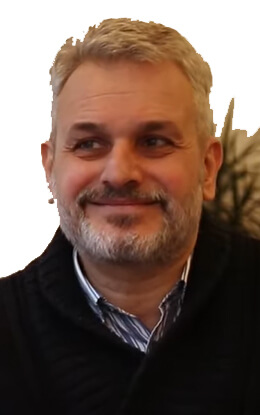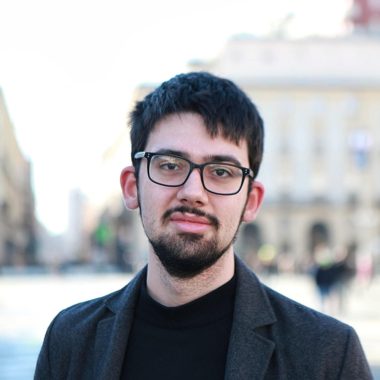The Odessa Journal is the major English-language newspaper in Southern Ukraine, founded in early 2020 by editor Ugo Poletti, an Italian entrepreneur whose aim, as stated on their website, is to cover “culture, economy and historical amenities in Odessa”, the biggest urban area and trading port across the Ukrainian seaside.
But the war, with its overwhelming energy, has cast apart this aim and made the Odessa Journal’s editorial board focus on the ongoing conflict.
“The day before the invasion we were planning to talk about art exhibitions, but as soon as the first bombings occurred early on February 24, we converted into a war newspaper,” says Poletti. “My Ukrainian staff felt the immediate urgency to write about the current invasion, that is causing them so much pain. Moreover, being the main English-language news provider in Southern Ukraine it became a duty for us not to stop working”.
Odessa wasn’t hit immediately, but the city has now become one of the main goals to achieve for the Russian Army. On March 26th, the day we reached Poletti over a video meeting, the Russians attempted a landing near the city which fortunately failed.
“There are many reasons why Moscow pursues the conquest of Odessa. First of all, that would tear apart Ukraine from the Black Sea, so it would cut away any remaining channel for import-export trade. Secondly, Odessa is a city where 80% of people speaks Russian and the area is so linked to Russia that annexing it is sort of a dream for the invader. On the other hand this closeliness is the reasons why Odessa has still not been devasted by massive bombings,” states Poletti, who stresses how, until more or less one year ago, the pro-russian political parties were hegemonic in the local councils.
Nevertheless Odessa has become a symbol of the resistance of a nation struggling to survive an infamous attack. Photos of barricades and armed volunteers have jumped from one news agency to another.
Poletti doesn’t hide the surprise he felt when he saw the great efforts carried to defend the city by its inhabitants, who are, as already said, almost all russian speakers.
“Eight years ago (when the Crimea was annexed and the Donbass invaded, ed) roughly half of the population still took a liking to Russia, because of a widespread USSR nostalgia as well as for the kinships with Russian relatives,” narrates Poletti, who got to know deeply the nature of Odessa’s society.
But, being a journalist, he has also had to cope with what he agrees to describe as an “irrational media’s attitude.”
Indeed this war has gained much more visibility than most of the previous (and current) ones. What’s striking is the way news items are launched and then denied in a media chaos that is even worse maybe than that during the Covid-19 first outbreak.
Asked about how much we can trust Ukrainian sources who may diffuse propaganda rather than facts, Poletti doesn’t deny that this situation may occur: “At the early stages of the invasion, official governmental sources told that the Ukrainian army had killed five thousand Russian soldiers. I’m fond of military history and I didn’t believe at all that it was possible, so I didn’t report that news. Later the Ukrainian government itself lowered the statistics”.
The Editor of the Odessa Journal does believe that there is a way to avoid fake news or distortions of reality and such a way lies in the photos and videos diffused through social networks by the Ukrainian citizens who suffer through the foreign invasion.
“Nevertheless, there are things you may never know, like the true number of deaths in the Mariupol’s theatre bombed on March 16th,” adds Poletti referring to one of the most disputed statistic in the crisis.
Those media reports are what shapes the policy of Western countries. “In the West the public debate is totally determined by Zelenskyy. It’s his own success,” admits Poletti.
But one of the most demanding points in Zelenskyy’s agenda is far from being imposed across the West: the no-fly zone.
We asked Poletti about this. “As a resident in Ukraine it is pretty obvious that the Ukranians claim much more efforts from the USA and the European Union. They say ‘we’re fighting for your freedom, why are you not fighting with us?’, they would like Western soldiers to be deployed in Ukraine. As a journalist I may say that Zelenskyy is a master of communication, he raises the stake cause he knows this is the only way to obtain even the smallest aid. But, eventually, as a Western citizen I think the no-fly zone is impossible: it means asking the West to go to war and I bet no western public opinion would agree to send troops against Russia. But this truth is so difficult to explain to Ukranians”.
Author
-

Dario Pio Muccilli is the Star-Revue’s Italian correspondent, based in Turin. Email him at muccillidariopio@gmail.com
View all posts
Dario Pio Muccilli is the Star-Revue’s Italian correspondent, based in Turin. Email him at muccillidariopio@gmail.com










